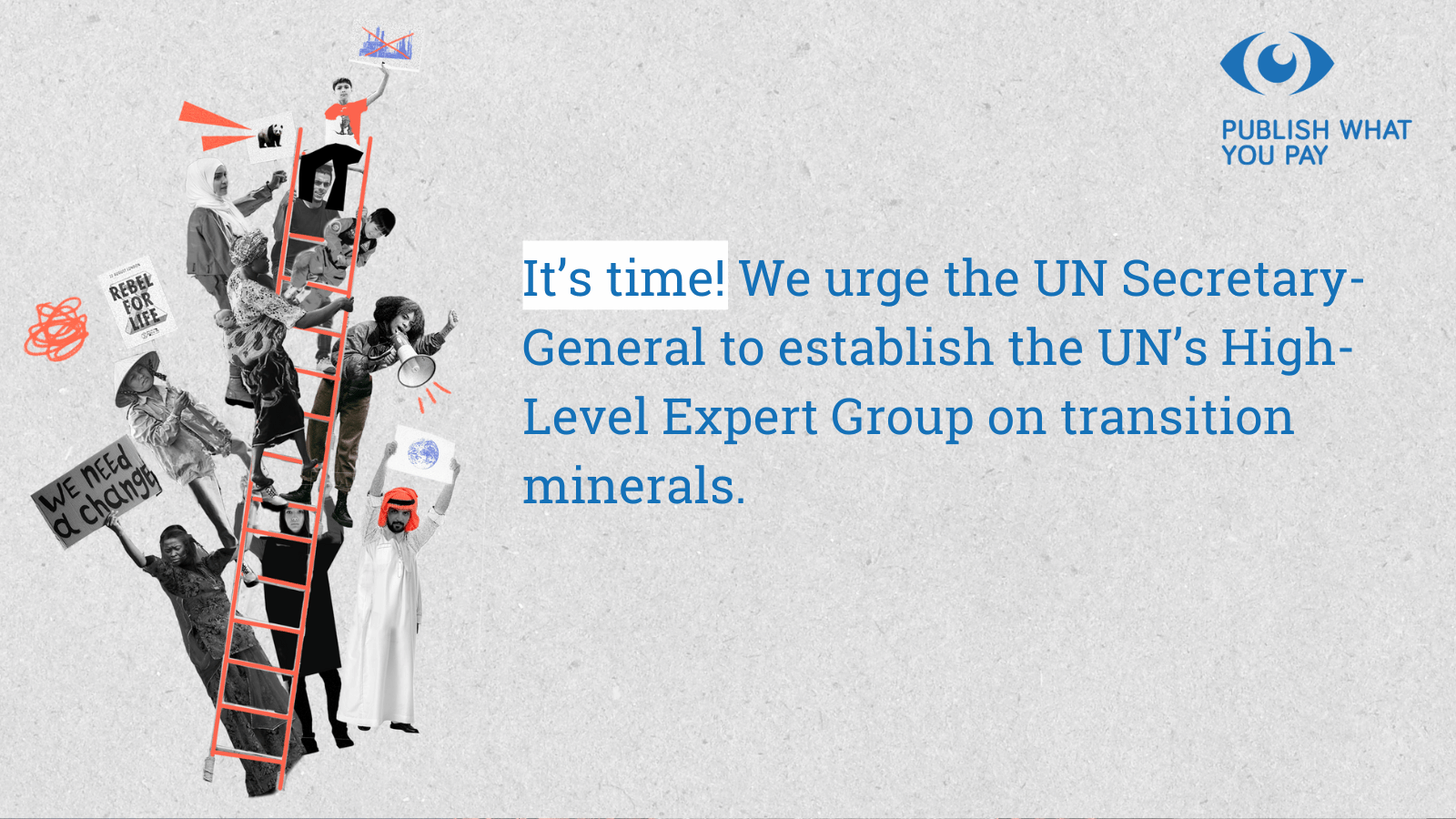Letter to UN Secretary General: Implement proposals on critical energy transition materials
Alongside many other organisations and networks, we call on the UN Secretary General to establish the promised multi stakeholder High Level Expert Advisory Group (HLEAG) to carry forward the UN's work on critical energy transition materials.

We, representing more than more than 150 Indigenous Peoples, labour unions, and civil society organisations advocating for sustainable development, good governance, climate action, economic justice, environmental justice, child rights, human rights, and Indigenous Peoples’ rights write to express our strong support for your commitment to advancing the implementation of the guidance issued by the Panel on Critical Energy Transition Minerals, which you convened last year.
The Principles and Actionable Recommendations published in September 2024 represent a critical and timely step toward ensuring that the race to net zero doesn’t “leave the poor behind” as you so aptly stated. Creating more just and equitable mineral value chains is essential for our collective future. Access to critical minerals—and the technologies they enable—increasingly shapes global geopolitics, and citizens in mineral-rich low- and middle-income countries, especially Indigenous Peoples and land-connected local communities, continue to bear disproportionate environmental and social costs without sharing equitably in the benefits. In this context, principled leadership from the United Nations is essential.
The Panel recommended the establishment of a multi-stakeholder High-Level Expert Advisory Group (HLEAG) under UN auspices to implement key components of proposed actionable recommendations. At COP29, you committed to the HLEAG’s formation during the launch of the Panel’s report. We and other stakeholders are concerned about delays in the establishment of the HLEAG, and we urge you to follow through on that commitment by moving to swiftly set it up.
Mineral-producing countries ranging from Ukraine to the Democratic Republic of the Congo are navigating growing trade and diplomatic complexity, reduced equitable development resources, and climate imperatives. In this highly dynamic context, the work of the HLEAG is urgently needed to advance equity and stability in the transition mineral sector.
Establishing the HLEAG is in line with ongoing reform discussions. Such a body would address the fragmentation of interventions around critical minerals, increasing coordination and efficiency across UN agencies and with key stakeholder and rights holders groups to tackle critical minerals governance issues of global importance at the intersection of the three pillars of the UN – peace and security, sustainable development, and human rights.
To ensure the HLEAG delivers the changes we need, the process must be based on the following principles:
- Inclusive Participation: Civil society organizations, Indigenous Peoples, labor unions, local communities, youth, and women must be included at all levels—political, technical, and implementation—with representation and decision-making power equal to that of other constituencies.
- Geographical Representation: Voices from all regions, particularly low- and middle-income mineral-producing countries, must be meaningfully included alongside organizations with global reach.
- Clear Engagement Terms: To ensure effective and informed participation, particularly given the financial constraints many civil society organizations and Indigenous Peoples face, terms of reference should clearly outline expected responsibilities, time and travel commitments, and available compensation.
- Transparency: Confidentiality clauses should not hinder members’ ability to consult with peers and other stakeholders. Maintaining openness and accountability is essential to building trust in the process.
- Public Engagement and Accountability: The process should include opportunities for public comment and a clear UN mechanism to follow up on stakeholder input and commitments made.
We reaffirm our support for an ambitious, inclusive, and justice-driven initiative under UN leadership, and we look forward to working with all stakeholders and rights holders to help shape a new paradigm for critical minerals governance—one grounded in human rights, environmental protection, equity, transparency, and shared benefit.
You can access the full list of of signatories here.


